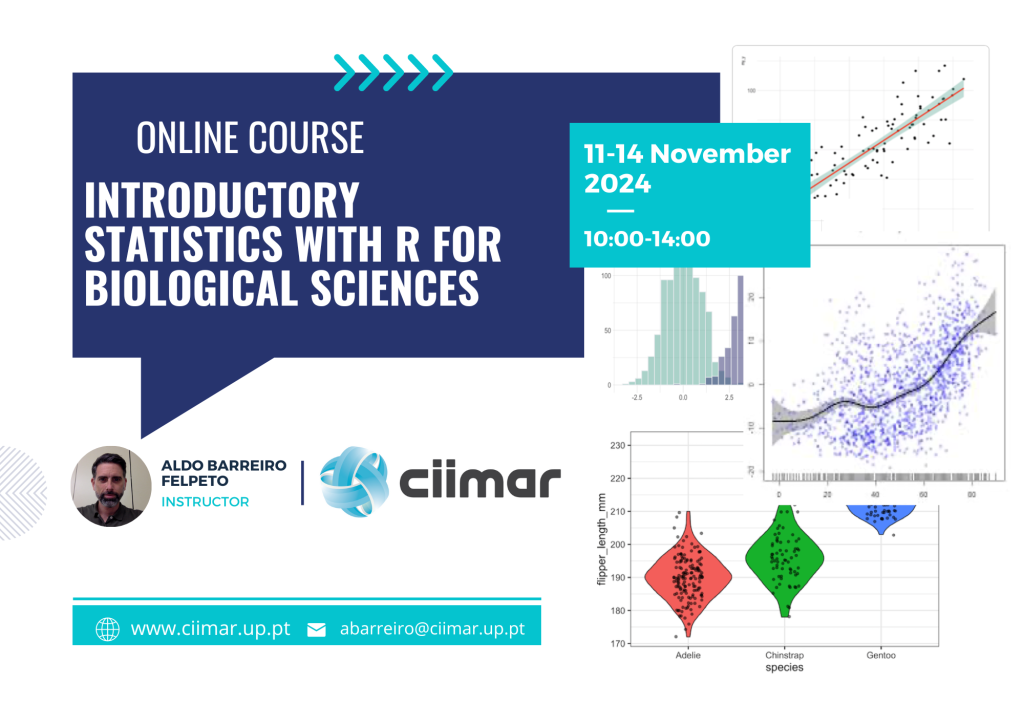Online Course – 16 hours; 11-14 November 2024

This course will focus on four aspects: descriptive statistics, distributions, regression, and hypothesis testing. Mastering these aspects will enable students to study in the future more complex statistical models that are more useful today in research, such as GLM and its extensions GLZ and GAM. In this course will be included an introductory example of GLM with an Analysis of Variance, that also includes random factors will be seen in an introductory way.
Although this course uses the R programming language as the basis for the examples and exercises, which will undoubtedly serve to further familiarize the student with it, learning this language is not an objective of this course.
The course consists of exemplified theoretical explanations, for which the open source programming language R will be used. Students will be provided with the material for the course lessons in pdf format, which contains the theoretical explanations together with the worked examples. The examples will also be supplied as R-language scripts. In addition, students will be provided with data files, which will be used to carry out a series of exercises during class hours. These exercises will also be reviewed during class hours.
Become familiar with the basic concepts of statistics and an introductory example of statistical model.
Check the course’s programme here.
Price: 100 € for CIIMAR/U.Porto/CCMAR members; 150€ for non-members.
Registration: after the announcement, up to fill 25 available positions.
Minimum audience required: 5 registrations two weeks before the course.
Aldo Barreiro Felpeto is a researcher at the Interdisciplinary Centre of Marine and Environmental Research (CIIMAR) associated to the University of Porto (Porto, Portugal). His research career has focused in plankton ecology. He defended his Ph.D. dissertation in 2007 in the Department of Ecology at the University of Vigo (Vigo, Spain) about interactions between zooplankton and toxic phytoplankton species from the Spanish NW Atlantic coast, southern Baltic sea and southern Tirreno coast. In 2008-2010, he performed a post-doctorate in the Department of Ecology and Evolutionary Biology at Cornell University (Ithaca, New York, USA). Since 2011 he is a researcher at CIIMAR.
He developed a strong background in statistics and dynamic modelling with R software, attending 10 courses in the period 2006-2018 and since 2013, organizing 14 editions of courses about different aspects of statistics and programming with R, mostly in CIIMAR, but also in the University of Vigo (Spain) and the University of Magallanes (Chile). He co-authored two books about statistics and programming: Tratamiento de Datos (Ed. Díaz de Santos, Madrid, 2006) and Tratamiento de Datos con R, SPSS y ESTATISTICA (Ed. Díaz de Santos, Madrid, 2010).
Due to his expertise in statistics and programming, he has developed collaborations in different fields of ecology, but also environmental sciences and molecular biology. He has published 60 articles, accounting for an h index of 27 and an i10 index of 48.
Website by: Glitz Design